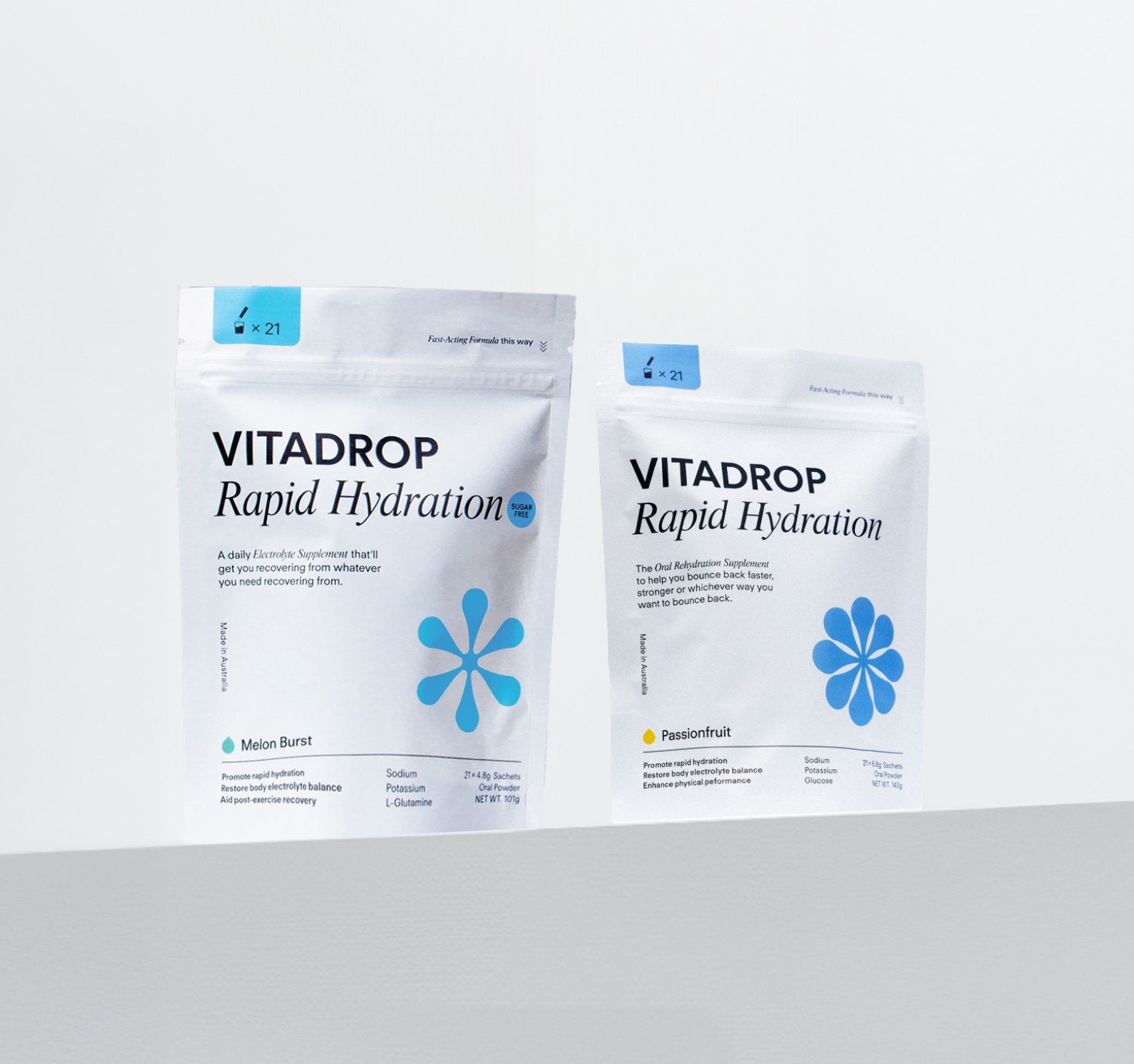Annie Nilsson - Oct 5 2020
Our Guide to Intermittent Fasting

Intermittent fasting is a great natural way to reduce body fat, lower chronic inflammation, increase energy and optimise your overall health. It’s also one of the few ways you can lose weight, gain muscle and detox your body without changing your diet.
But How?
By changing when you eat, not what, or the amount you eat.
The purpose of intermittent fasting is to give your body bigger breaks from food rather than cutting calories. This allows it to focus energy on regeneration instead of digestion, and adapts to using fat stores for fuel.
Not only is it a fantastic weight loss tool, but intermittent fasting has been shown to reduce hypertension, asthma and rheumatoid arthritis, and has the power to reduce risks of various other health conditions.
Intrigued? Before you try it out, there are a few things you ought to know before you begin.
Intermittent fasting improves digestion
Most of the body’s energy is used up during digestion, which gives little to no room for repair. Especially because each meal, depending on what we eat, can take up to four hours to digest, and usually, we’re already on to our next meal.
While intermittent fasting might sound like a daunting challenge full of restrictions, it’s something we’re already doing every night while we sleep. The time between our last meal of the day and our breakfast is a period of fasting, with people who practise intermittent fasting aiming to extend this fasted period.
One of the reasons sleep is so regenerative and important is because we don’t eat during that period. So by extending the fasting window from the time we sleep - either a few hours before bed or after we wake up - we can significantly enhance our body’s ability to repair and regenerate itself.
Through mechanisms like apoptosis, the body can kill off inefficient cells and remove them from the body, and autophagy, where the body can metabolise foreign bodies, pathogens, bacteria, and viruses. Ultimately, making the body more efficient and able to repair itself.
All of which improves digestion, immunity, performance, and mental clarity
How intermittent fasting burns fat
Intermittent fasting enhances ketosis - a period where your body begins to burn fat as fuel, instead of using glucose (sugar) - increasing fat metabolism and weight loss.
Intermittent fasting also increases human growth hormone and stimulates muscle growth, making it a super powerful way to transform body composition and enhance performance.
Launching into intermittent fasting before you’ve developed basic healthy eating habits however, is a recipe for disaster. Before you start your intermittent fasting journey, make sure you’re giving your body the nutrients it needs.
A diet high in protein and healthy fats, as well as lots of veg will keep you satisfied and full of energy while you're fasting, and help keep your sugar cravings at bay.
Types of intermittent fasting
Intermittent fasting can work with almost anyone’s schedule, with oh so many different methods to choose from.
As with any health habit however, it's important to remember that what helped your friend reach their fitness goals might not necessarily be the best solution for you. So, make sure to do your research, and don't be afraid to take on some trial and error to work out which method is best for your mind, and body.
And if it's something you haven't tried before, there’s nothing wrong with easing yourself into it.
Launching yourself into a 20 hour fast is likely to leave you feeling exhausted and hungry so try finishing your last meal an hour earlier, or adding an extra hour before you eat breakfast and gradually increase your fasting period while monitoring how you're feeling.
16:8
This is a time-restricted eating window of 8 hours and a fasting period of 16 hours (including sleep time). The time of day you eat is flexible, meaning your eating window could be from 7am to 3pm, 10am to 6pm, 12pm to 8pm or whatever works for your schedule.
Alternate day fasting
This is about intermittent calorie restriction. Where every alternate day you restrict your calories to a quarter of your normal calories, usually around 500 calories.
5:2 Diet
Similar to alternate day fasting, with less effort, and incredible results. For two days of the week, you restrict your calories to 500-600 calories and for the rest of the week, you’re able to eat whatever you want.
Which type of intermittent fasting is best?
Note that everyone is different. Some thrive on an entire 24-hour fasting period every week, while others feel better by sticking to a shorter daily fasting window.
16:8 is often easier to keep up daily, but others like the focus of a disciplined calorie restriction like 5:2.
Remember that while it has many potential health and fitness benefits, intermittent fasting doesn't work for everyone, and for some, isn't necessarily a safe option. So, seeing a doctor to address any health concerns before you begin your fasting journey is always a good idea.
What Breaks a Fast? Foods, Drinks, and Supplements
When breaking your fasting period, certain foods are better than others.
It's also important to note that some food, drinks and even supplements can break your fast unintentionally. Particularly those containing calories and sugar.
Due to its low calorie content, moderate amounts of black coffee are unlikely to break your fast. Some studies show that coffee may even enhance the benefits surrounding intermittent fasting, including a reduction in inflammation, and improved brain function.
Supplements can also be used during fasting periods, however it's important to be aware of what effect they will have on your body.
Things like vita gummies, protein powder and BCAAs, or any other supplements that contain ingredients like maltodextrin, pectin, cane sugar, or fruit juice concentrate often contain sugar - producing an insulin response that will break your fast.
However low calorie multivitamins like The Daily that are free from sugar or added fillers are less likely to break your fast. Similarly, fish oil, individual micronutrients like Vitamin B, creatine, collagen and pro and prebiotics are unlikely to trigger a response.
It’s important to note however, that fat soluble vitamins including Vitamin A, D, E and K are best absorbed, taken with food, and might be best taken once your fasting period is over.
While food and drinks containing calories will technically break your fast, nutrient dense or products high in healthy fats might still play an important role in your fasting journey as long as they are low in carbs.
Some choose to drink coffee containing MCT, coconut oil or butter during their fast. Though the fat will break a fast, it won't break ketosis, so can be helpful to get your through between meals.
Similarly, the nutrient rich nature of bone broth can be helpful in replenishing vital components lost during fasting periods.
Article credit :
https://nutrientavenue.com.au/blogs/news/why-probiotics-could-be-bad-for-you
https://www.healthline.com/nutrition/what-breaks-a-fast
https://www.healthline.com/nutrition/6-ways-to-do-intermittent-fasting
https://www.healthline.com/nutrition/ketosis-safety-and-side-effects#TOC_TITLE_HDR_2
https://pubmed.ncbi.nlm.nih.gov/29281182/
https://pubmed.ncbi.nlm.nih.gov/30881590/
https://pubmed.ncbi.nlm.nih.gov/12624482/
https://www.health.harvard.edu/blog/intermittent-fasting-surprising-update-2018062914156
https://www.hopkinsmedicine.org/health/wellness-and-prevention/intermittent-fasting-what-is-it-and-how-does-it-work








